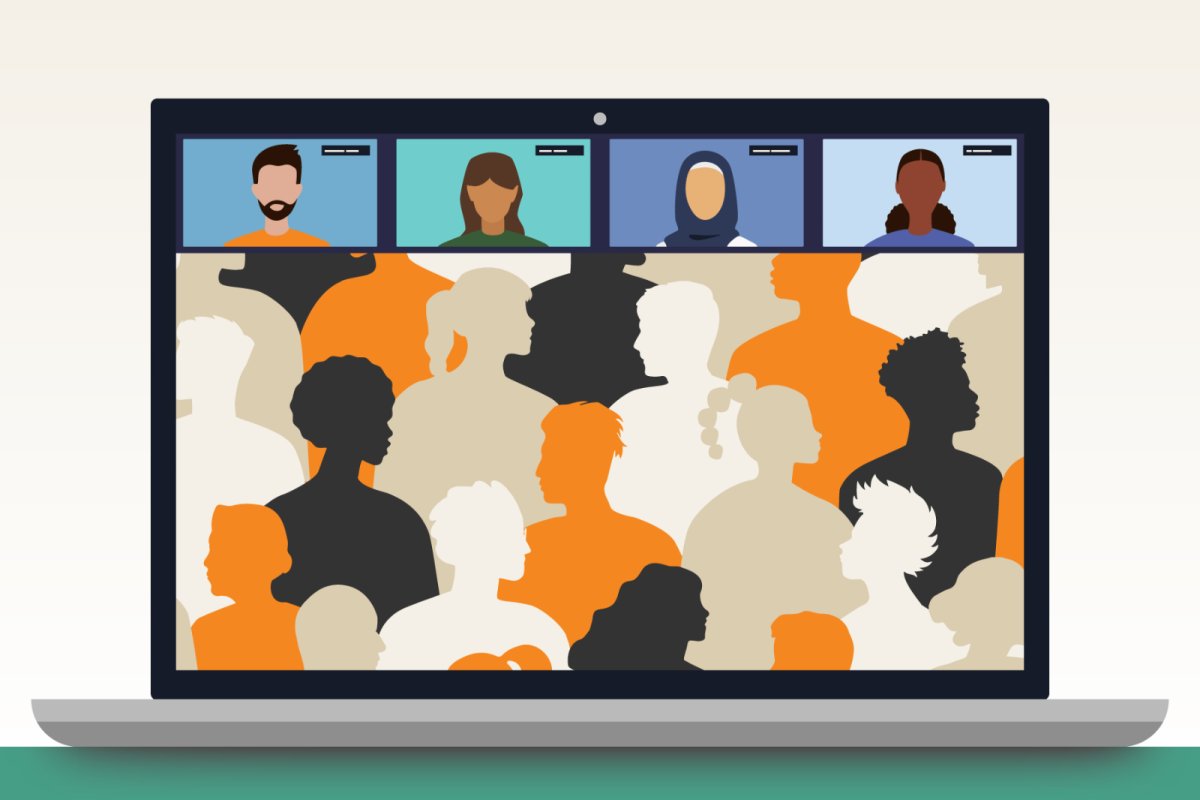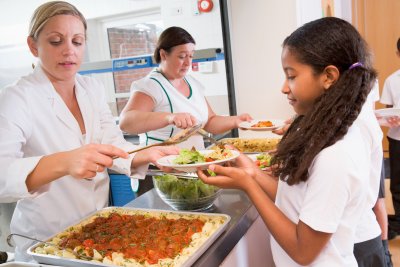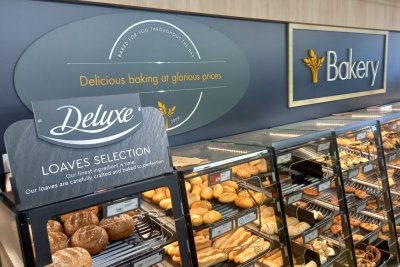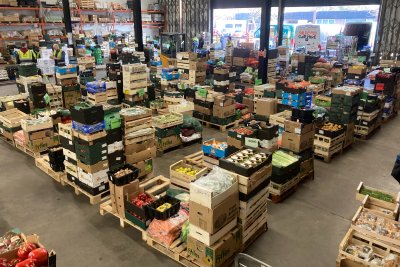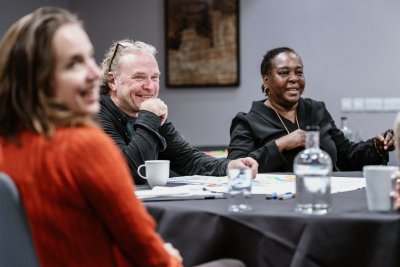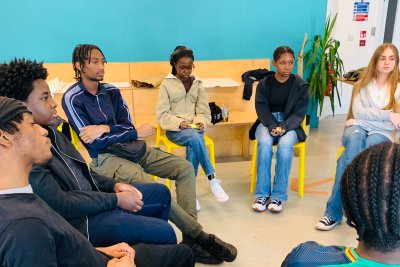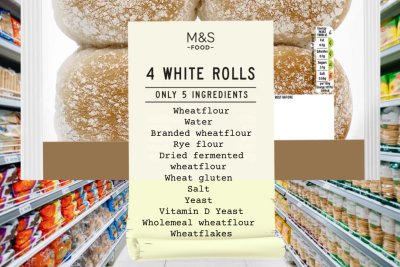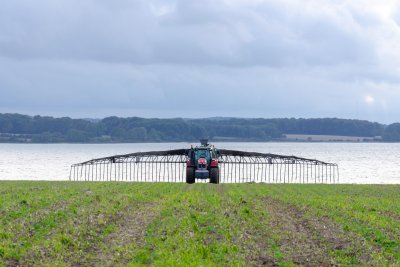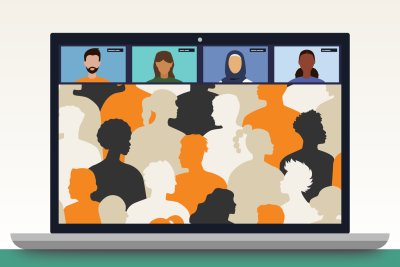 Diversity and anti-racism workshop. Sustain
Diversity and anti-racism workshop. Sustain
How to be an anti-racist organisation – reflections on workshop 3
Roshni Shah from Sustain and Idman Abdurahaman from Eating Better reflect on the content and learnings from our last workshop, and the programme as a whole whilst looking ahead to the future.
Last month, we held the final workshop in our series, ‘How to be an anti-racist organisation’. The aim of the third session was to consolidate the learning from the first two workshops and learn how to apply it to our own work using a Race Equity Lens.
What we learned
This final session was the culmination of all the learning and reflection we had been doing this series. We used that knowledge to apply a race equity lens to a number of scenarios and finally plan actions for our own organisations.
We discovered that the framework of the lens provided participants with a useful structure to interrogate working practices, with many participants saying that this lens will directly impact their own work as they introduce it to their workplaces.
I thought it [the race equity lens] was really useful! It was easier to pick up on possible blind spots and think critically for a project that was removed from my day-to-day work, which gave a good sense of how the race equity lens can be applied. I also appreciated doing it in a group and having the same group throughout to be able to delve in a bit deeper all together.
And as the final session drew to a close, there was a definite desire expressed to support this work and community going forward.
It would be great to have follow up sessions, as there is so much benefit in being able to discuss this, to have a forum to bring questions, concerns etc - plus the accountability from a peer group who are there to support and challenge each other to do the work
How the session went
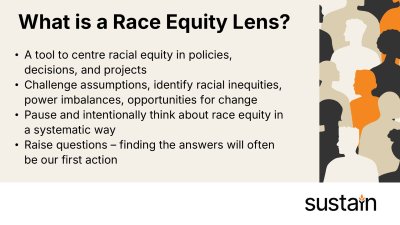
The race equity lens
This is a flexible tool that can be used for projects of all sizes and by organisations and individuals. It applies to immediate as well as long term, structural changes and it is centred around the 5 Ps:
- Purpose
- Participation
- Potential
- Power
- Progress
The group was given a set of real world scenarios to apply the lens to. They covered inclusivity in internal policies, centring anti-racism in event coordination and addressing current needs and historical inequities in campaign planning.
Their discussions led to some insightful reflections around the process of applying the lens. Using the tool (rather than jumping straight to solutions) helped unlock richness and come up with better ideas. The lens was highlighted as a process to respect, and as it leads to collaboration and co-production means that it is not a path to run, but a path to walk together to get to the right destination. ‘In our sector there is often time pressure and the push to get things done fast which can often scupper processes like this but ultimately leads to wasted time because you don’t get it right.’
It was noted that many of us work in very small organisations that lack resource and time which ultimately feeds back into white dominant culture. The amount of change needed can feel very overwhelming, and therefore it is important to take a step back and understand how your own organisation can change and how much influence it can assert. But this work cannot be done in silos and having support groups with organisations that want to make a difference are so important. ‘Keeping this group going would help people to feel empowered to make those changes and to help everybody else push forward.’
Looking to the future
We ended the series with participants making pledges for the future -
- I will review recruitment barriers, creating actionable changes for our next round of recruitment for both staff and trustees.
- I will host a staff reflection session on recruitment and co-design a recruitment plan.
- I will work with the anti-oppression group to continue internal reflections and utilise the amazing resources from these sessions! We will review policies with anti-racist lens
- I am about to recruit for a volunteering group aimed at amplifying the voices of young people. I will apply the lens to this process - ideas so far include giving the applicants a task to complete rather than relying on previous experience (emphasis on potential) and reviewing the language used to see if it is culturally coded.
- Use the lens to redefine our monthly team meetings, this will also share with the team how the lens works to be used in other scenarios.
What else do participants need?
Whilst it is great to see participants striving to make positive changes in their organisations, anti-racist practice is a lifelong journey and support structures need to be in place to enable it. Our group highlighted the need for peer support, more learning programmes, funding (to aid capacity), supportive leadership and time.
- I would really love to continue the peer group for resource sharing, idea generation, support, and accountability to keep moving this work forward!
- Capacity to do the work - more funding and staff time to build relationships, develop and implement changes.
- Guidelines to share with all the organisations to refer back to. And keep a working party to communicate with organisations to support each other.
- Time to go over the many useful tools, resources and whiteboard content shared. Ongoing contact with peers.
- Continued workshops would be great!
Feedback from the particpants
We are grateful to all the people that took the time from their busy schedules to attend the training and share their experiences, challenges and knowledge so openly. And we welcome their feedback on the programme:
- I've participated in anti-racism training before, but in this programme, I found the definition of allyship (as a verb, with a strong focus on solidarity) impactful. The real world case studies were extremely helpful, and the race equity lens is excellent; we will definitely be using the lens in our work. I also really appreciated the constructive focus of the sessions.
- I’ve learnt how small organisations with fewer resources have more ability to change than it might seem.
- It's been useful to see that there are some common themes we are all struggling with, particularly recruitment and governance. And learning about allyship, when to step up, when to step aside, call out and call in, has been helpful for me to assess how and when I am doing this and where I could do more.
- I have found it really helpful to better understand, and be equipped to articulate, how racial justice work is fundamental to creating a better food system, and therefore integral in our work, not a desirable add-on.
Final thoughts from us
Sustain and Eating Better have been on a learning journey since both alliances committed to furthering racial justice in the food and farming sector. Through conversations with our members, it became clear that space for learning and knowledge exchange on this topic was desired.
This programme was created in response. We are so pleased to have seen consistent attendance, great participation, and the collective creation of an open learning environment - an essential when tackling topics like this. We co-created a space where it was ok to ask questions and make mistakes, where participants felt safe to share their experiences (real life examples of where they were stuck in their anti-racism journey).
Participants were clear however, on not putting the entire burden of educating others on people of colour- as two people of colour leading this training programme it was important for us to also bring in someone that has expert experience guiding organisations to do this work on a day to day basis. This programme would have not been a success without the support of Hannah from The Social Justice Collective.
As a sector, we have a long way to go and the work takes time but we believe that programmes like this have lasting impact. There is real value in creating beginner friendly spaces that then motivate people to take action and learnings back to their own organisations/life. And such work is more urgent in a world where DEI initiatives are actively being stripped back.
Our anti-racism programme was more successful than we could have ever imagined. We were oversubscribed, had consistent attendance and excellent feedback, demonstrating how hungry people are for knowledge that is relevant to our sector.
But 3 workshops do not solve racism. Long term commitment needed; we do not want to fall victim to the ‘pilot-washing’ that is so endemic in our sector. We need funders to commit to action, organisations to commit time and resource and everyone (from entry to board level) to commit to learning and enacting change. This is just the start.
Diversity, equity and inclusion is not the end goal - liberation and justice is the end goal
Further Reading
More examples of race equity lenses.
Read our summary of workshop 1.
Read our summary of workshop 2.
Sustain: Sustain The alliance for better food and farming advocates food and agriculture policies and practices that enhance the health and welfare of people and animals, improve the working and living environment, enrich society and culture and promote equity.
Sustain
The Green House
244-254 Cambridge Heath Road
London E2 9DA
020 3559 6777
sustain@sustainweb.org
Sustain advocates food and agriculture policies and practices that enhance the health and welfare of people and animals, improve the working and living environment, promote equity and enrich society and culture.
© Sustain 2025
Registered charity (no. 1018643)
Data privacy & cookies
Icons by Icons8
